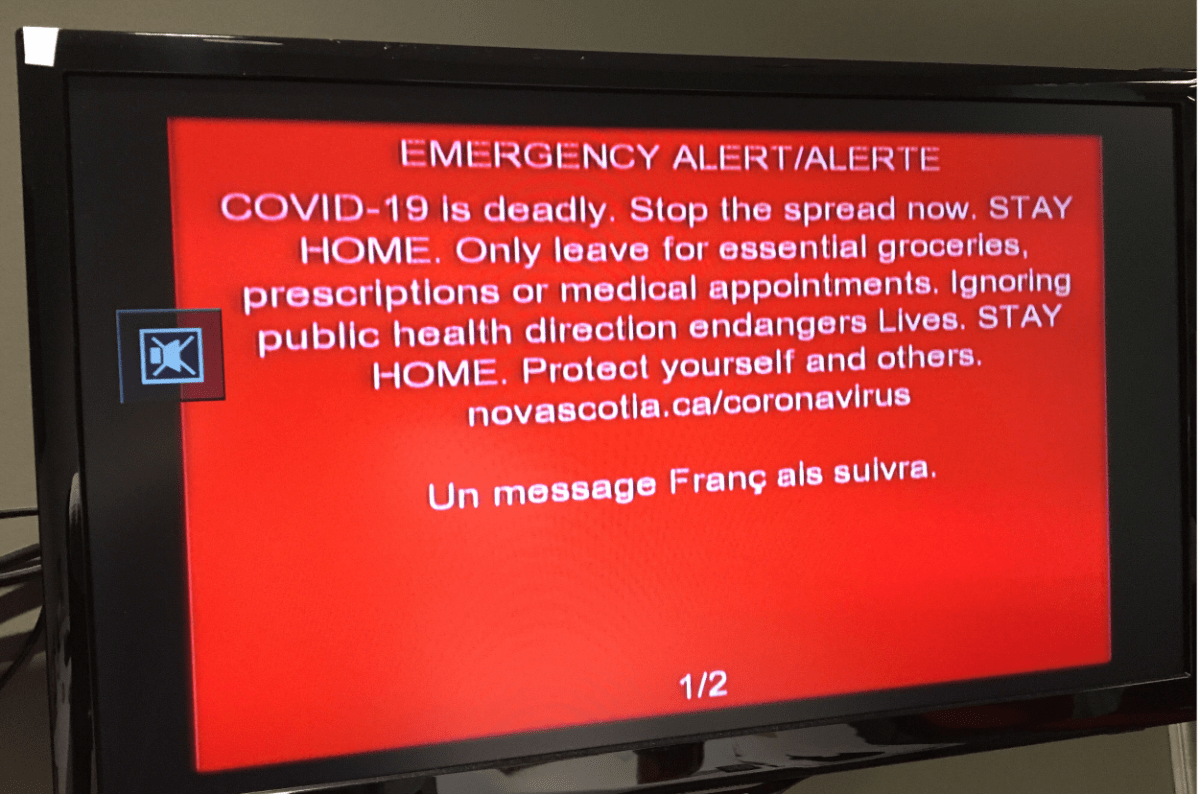An emergency alert was issued across Nova Scotia mobile devices and televisions Friday morning, urging all residents to only leave their home for essentials.

The alert was sent out just after 11 a.m.
“COVID-19 is deadly,” the alert reads. “Stop the spread now. STAY HOME. Only leave for essential groceries, prescriptions or medical appointments.
“Ignoring public health direction endangers lives. STAY HOME. Protect yourself and others.”

The alert encourages the public to receive up-to-date COVID-19 information at novascotia.ca/coronavirus.
The province announced 31 new cases of COVID-19 on Thursday, bringing the provincial total to 373.

Get weekly health news
There have been two coronavirus-related deaths in Nova Scotia. The first was a woman in her 70s, while the second was a woman in her 90s.
READ MORE: 2nd death connected to coronavirus identified in Nova Scotia
Both died at the Cape Breton Regional Hospital and had underlying medical conditions.
Questions about COVID-19? Here are some things you need to know:
Health officials caution against all international travel. Returning travellers are legally obligated to self-isolate for 14 days, beginning March 26, in case they develop symptoms and to prevent spreading the virus to others. Some provinces and territories have also implemented additional recommendations or enforcement measures to ensure those returning to the area self-isolate.
Symptoms can include fever, cough and difficulty breathing — very similar to a cold or flu. Some people can develop a more severe illness. People most at risk of this include older adults and people with severe chronic medical conditions like heart, lung or kidney disease. If you develop symptoms, contact public health authorities.
To prevent the virus from spreading, experts recommend frequent handwashing and coughing into your sleeve. They also recommend minimizing contact with others, staying home as much as possible and maintaining a distance of two metres from other people if you go out.
For full COVID-19 coverage from Global News, click here.








Comments